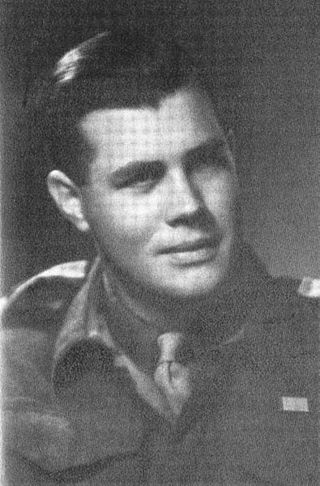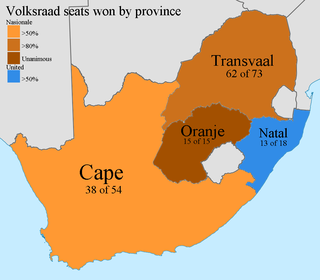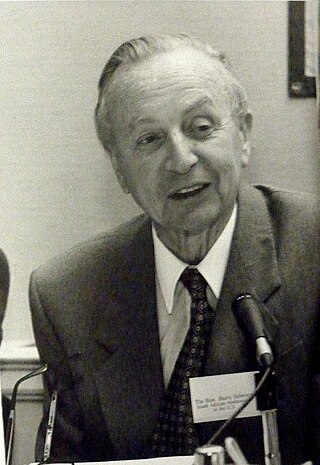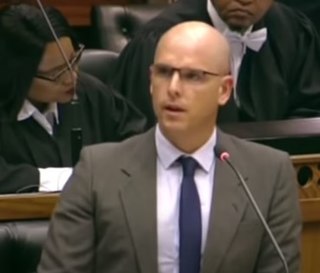
The Democratic Party (DP) was the name of the South African political party now called the Democratic Alliance. Although the Democratic Party name dates from 1989, the party existed under other labels throughout the apartheid years, when it was the Parliamentary opposition to the ruling National Party's policies.

The Liberal Party of South Africa was a South African political party from 1953 to 1968.

Helen Suzman, OMSG, DBE was a South African anti-apartheid activist and politician. She represented a series of liberal and centre-left opposition parties during her 36-year tenure in the whites-only, National Party-controlled House of Assembly of South Africa at the height of apartheid.
The Progressive Party was a liberal party in South Africa which, during the era of apartheid, was considered the left wing of the all-white parliament. The party represented the legal opposition to apartheid within South Africa's white minority. It opposed the ruling National Party's racial policies, and championed the rule of law. For 13 years, its only member of parliament was Helen Suzman. It was later renamed the Progressive Reform Party in 1975, and then Progressive Federal Party in 1977. The modern Democratic Alliance considers the party to be its earliest predecessor.

Anthony James Leon is a South African politician who served as leader of the opposition from 1999-2007 as leader of the Democratic Alliance (DA). He led the DA from its inception in 2000, until his retirement from leadership in 2007. Before that, he led the Democratic Party from 1994. He is the longest serving leader of the official opposition in parliament since the advent of democracy in 1994. Although still a member of the DA, he served as the South African Ambassador to Argentina, Uruguay and Paraguay under the ANC government from 2009 to 2012.

The Progressive Federal Party (PFP) was a South African political party formed in 1977 through merger of the Progressive and Reform parties, eventually changing its name to the Progressive Federal Party. For its duration was the main parliamentary opposition to apartheid, instead advocating power-sharing in South Africa through a federal constitution. From the 1977 election until 1987 it was the official opposition of the country.

Colin Wells Eglin was a South African politician best known for having served as national leader of the opposition from 1977–79 and 1986–87. He represented Sea Point in the South African Parliament from 1958–61 and from 1974–2004. Described by Nelson Mandela as "one of the architects of democracy", Eglin played a leading role in the drafting of the country's post-apartheid constitution.

Harry Gordon Lawrence (1901–1973) was a South African politician.

Clive Berrangè van Ryneveld was a South African cricketer who played in 19 Test matches between 1951 and 1958. He was the son of Reginald Clive Berrangè van Ryneveld and Maria Alfreda Blanckenberg. Before his death in 2018, he was the oldest living South African cricket captain.

General elections were held in South Africa on 18 October 1961. They were the first general elections after South Africa became a republic following the 1960 South African referendum. The National Party under Hendrik Frensch Verwoerd won a majority in the House of Assembly.

General elections were held in South Africa on 16 April 1958. The result was a victory for the National Party, now under the leadership of J.G. Strijdom after the retirement of Daniel Malan in 1954. The opposition United Party campaigned for the first time under De Villiers Graaff, who would remain party leader for two decades.
General elections were held in South Africa on 22 April 1970 to elect members of the 166-seat House of Assembly. Parliament was dissolved on 2 March and the deadline for the submission of candidates was 13 March.

General elections were held in South Africa on 30 March 1966. The result was another comprehensive victory for the National Party under Hendrik Frensch Verwoerd.

The New Republic Party (NRP) was a South African political party. It was formed as the successor to the disbanded United Party (UP) in 1977 and as a merger with the smaller Democratic Party. It drew its support mainly from the then Province of Natal, and tried to strike a moderate course between the apartheid policy of the ruling National Party (NP) and the liberal policies of the Progressive Federal Party (PFP).
Wyatt Vause Raw, DMS was a conservative opposition South African politician of the Apartheid era. He was a prominent member of the United Party from the 1940s to the late 1970s, and the leader of the succeeding New Republic Party (NRP).

Harry Heinz Schwarz was a South African lawyer, statesman and long-time political opposition leader against apartheid in South Africa, who eventually served as the South African Ambassador to the United States during the country's transition to majority rule.

Zacharias Johannes de Beer was a South African politician, businessman and diplomat. A liberal Afrikaner, he was the last federal leader of the Progressive Federal Party and then the co-federal leader of the Democratic Party.
Although the Democratic Alliance of South Africa in its present form is fairly new, its roots can be traced far back in South African political history, through a complex sequence of splits and mergers.

The Constitution of 1983 was South Africa's third constitution. It replaced the republican constitution that had been adopted when South Africa became a republic in 1961 and was in force for ten years before it was superseded by the Interim Constitution on 27 April 1994, which in turn led to the current Constitution of South Africa, which has been in force since 1997.

Michael John Cardo is a South African author and politician serving as the Shadow Minister of Employment and Labour since June 2019. He was elected to the National Assembly of South Africa in May 2014. Between June 2015 and June 2019, he was the Shadow Minister of Economic Development. Cardo is a member of the Democratic Alliance.
















